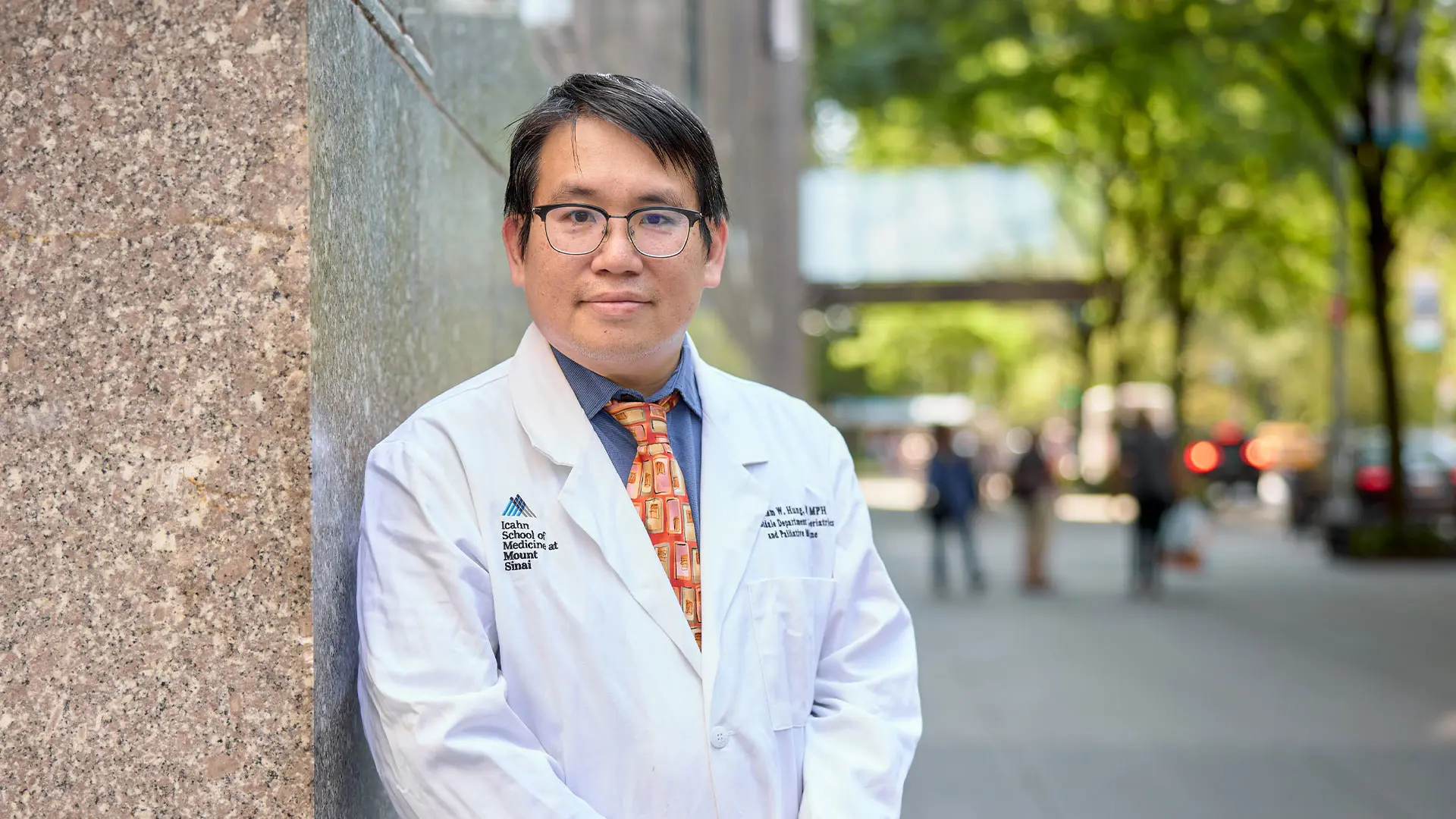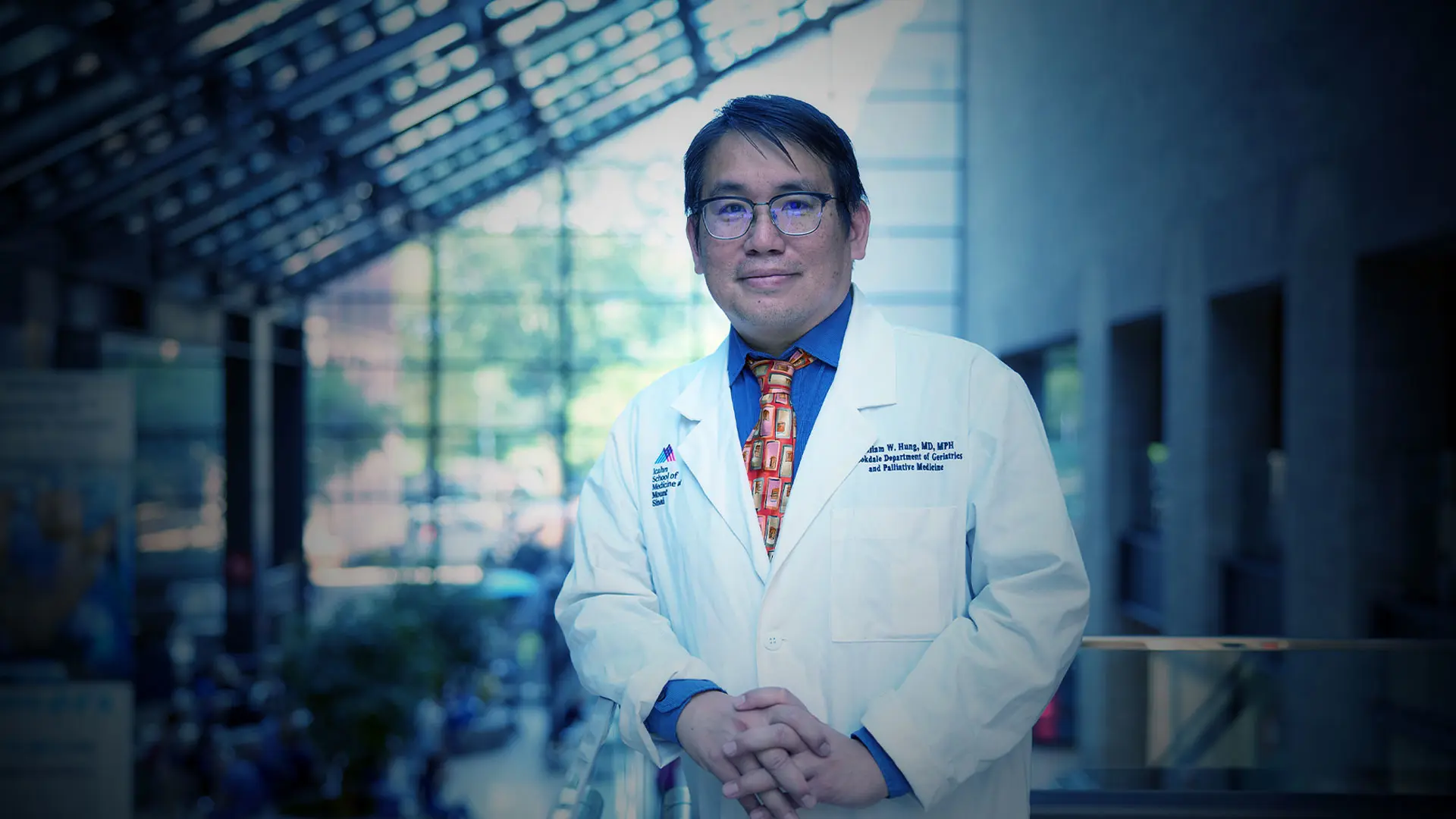As a Mount Sinai fellowship-trained geriatrician, Brookdale Department faculty member, and highly accomplished scientist at the James J. Peters Veterans Affairs (VA) Medical Center in the Bronx for the past decade, William Hung, MD, MPH, Professor of Geriatrics and Palliative Medicine at the Icahn School of Medicine at Mount Sinai, has thrived on innovation. In his newly announced role as the Director of the Geriatrics Research Education and Clinical Center (GRECC) at the Bronx VA and Vice Chair for Veterans Affairs in the Brookdale Department, he will expand on efforts to improve the care of older and seriously ill veterans.
GRECC is a network of VA Centers of Excellence that was created by Congress in 1975 to enhance the health care of older veterans. Each GRECC is connected to an academic medical center and collectively are charged with developing innovative new approaches to care for older adults, while simultaneously providing training and education on best practices to VA trainees and staff.
“Leading the Bronx VA GRECC is a tremendous honor and I feel a great responsibility to develop and evaluate novel models of care to meet the needs of our veterans,” says Dr. Hung.

“We want to integrate the innovative approaches that Mount Sinai has developed in palliative care into the care of veterans both at the Bronx VA and throughout the national VA health care system,” says William Hung, MD, MPH, Professor, Brookdale Department of Geriatrics and Palliative Medicine at the Icahn School of Medicine at Mount Sinai.
Among Dr. Hung’s most significant accomplishments is his work with colleagues across the United States to create and operate GRECC Connect, a program across 18 VA medical centers that extends virtual geriatric care and consultation to older veterans in rural areas of the United States with limited access to providers. For the past nine years, the Bronx VA has served as the coordinating center of this sprawling telehealth effort, which links geriatrics specialists from the GRECC (usually in urban centers) to rural front-line provider teams and the older veterans in rural areas where they provide care.
Future efforts to improve care delivery for older veterans include enhancing surgical care for older veterans who are frail and at risk for adverse outcomes as well as improving geriatric care in emergency departments nationwide. In collaboration with Fred Ko, MD, MSCR, Associate Professor in the Brookdale Department, and surgical colleagues, the GRECC is creating new programs to improve surgical outcomes for older adults.
“This is a very important area where the goal is to either optimize patients for surgery or thoroughly examine the clinical alternatives,” he says. “Some patients might benefit greatly, for example, from a pre-habilitation regimen of pre-surgical physical therapy and strengthening exercise prior to their planned surgery.”
In collaboration with Ula Hwang, MD, MPH, Professor of Emergency Medicine at Yale School of Medicine, the GRECC is focused on improving geriatric care in the emergency departments. The goal of this program is to improve the overall health care of older veterans by screening them in Emergency Departments for frailty, cognitive impairment, and other disorders ensuring appropriate follow-up care within the VA upon hospital discharge.
In support of his vision for the continued growth of GRECC, Dr. Hung has obtained significant support from the Bronx VA’s leadership to expand palliative care services so that palliative care can be provided earlier in the course of serious illness and made more broadly available to veterans.
“We want to integrate the innovative approaches that Mount Sinai has developed in palliative care into the care of veterans both at the Bronx VA and throughout the national VA health care system,” says Dr. Hung.
As he plans for the future, Dr. Hung is also focused on continuing to expand the relationship between Mount Sinai and the Bronx VA. Mount Sinai has been building its collaboration on research, education, and clinical care since this joint effort began in the 1990s, part of an effort to link the VA to academic medical centers.
“We want to see where the touchpoints are for synergy among the GRECCs and Mount Sinai,” he says, “so that we can bring some of the expertise of our nationally recognized health care programs to the care of veterans in the Bronx. And we can advance the work we have done with GRECC Connect to aid the Mount Sinai Health System.”
“That collaboration is one of the real strengths of our program,” Dr. Hung says. “The GRECCs are a very rich resource that we think of as laboratories where we can create advanced care models that will benefit older adults within and outside of the VA.”
